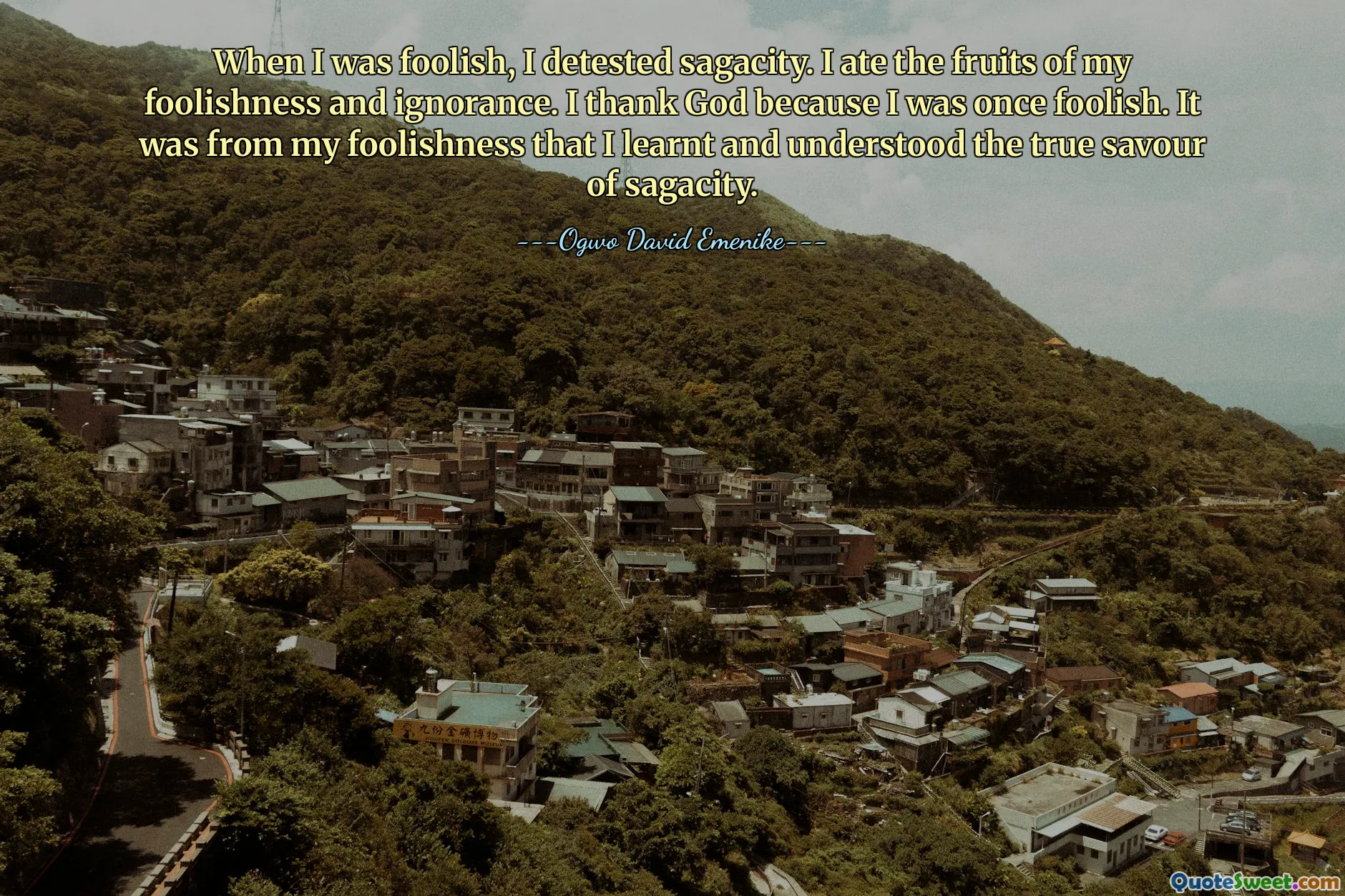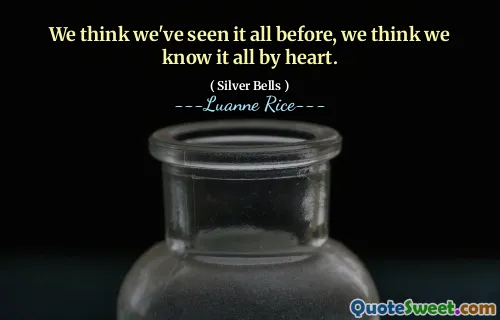
When I was foolish, I detested sagacity. I ate the fruits of my foolishness and ignorance. I thank God because I was once foolish. It was from my foolishness that I learnt and understood the true savour of sagacity.
This quote explores the profound relationship between ignorance and wisdom, highlighting how experience — even mistakes — serve as vital teachers on the path to understanding. Initially, the speaker admits to despising wisdom in their ignorance, which is a common human experience: a desire for simplicity often blinds us from appreciating the value of learning the harder lessons. The metaphor of eating the fruits of foolishness and ignorance suggests that these experiences, though unpleasant, are essential for growth. It takes humility to recognize that being foolish was necessary in order to attain genuine wisdom. The speaker expresses gratitude for past mistakes, emphasizing that true sagacity doesn't stem from an innate understanding but often from deliberately stumbling and learning from those failures. This perspective encourages a mindset of acceptance toward our errors, seeing them as stepping stones rather than setbacks. It reminds us that wisdom isn't merely about knowing, but about understanding the depth and richness of our experiences, the savory taste of enlightenment gained through trial and error. Recognizing and embracing our past foolishness can unlock a deeper appreciation for the journey of self-discovery and the importance of patience in personal development. Such insights invite individuals to reflect on their own missteps not as failures, but as essential ingredients in the recipe for wisdom, urging us to cherish our past ignorance as a precursor to true understanding and sagacity.







